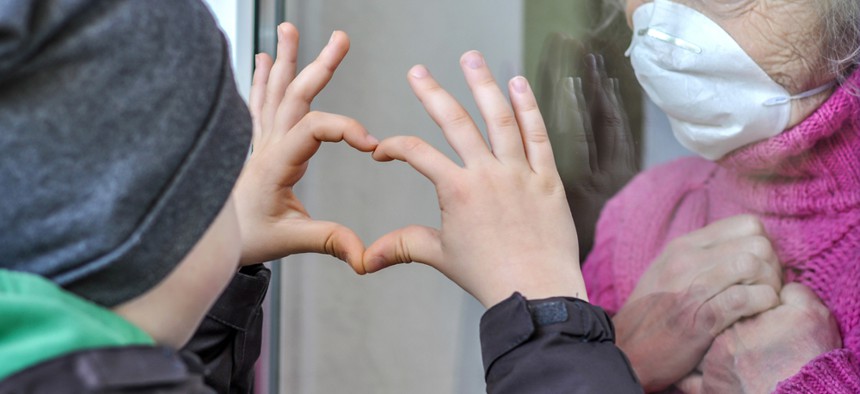Helping the elderly emerge from social isolation exacerbated by COVID-19
Meredith Levine, senior director at the Jewish Association Serving the Aging, discusses how a new chat program is helping older persons not feel alone during the pandemic.

Elderly during COVID-19 Alonafoto/Shutterstock
Before the coronavirus pandemic, elderly persons were already a vulnerable population suffering from increased risk of loneliness and social isolation more than any other population.
The National Academies of Sciences, Engineering, and Medicine (NASEM) reported that nearly one-fourth of adults aged 65 and older are likely to become socially isolated. This leads to detrimental effects on their mental health, such as increased rates of depression, anxiety, and suicide. It also can impact their physical health, such as a 29% increased risk of heart disease and a 32% increased risk of stroke.
Now, with the emergency of the Omicron variant prolonging the effects of the coronavirus pandemic, the elderly are even more at risk, according to Meredith Levine, senior director at the Jewish Association Serving the Aging.
“When Covid-19 first hit, there was a lot of fear in the older adult community. Suddenly fully independent older adults who were totally capable of managing on their own, doing their own grocery shopping, had a big social life, found themselves totally isolated and afraid to even go outside,” Levine said in an interview with New York Nonprofit Media. “They weren't even sure how they were going to go grocery shopping and get basic needs like food, toilet paper, things like that.”
The impacts of COVID-19 left elderly persons unable to do their social activities and kept them seeing relatives and friends, Levine explained. This population ended up losing the support systems they had relied on.
“And so, what we're seeing now is a lot of mental health effects, as this pandemic has dragged on longer and longer. There's also the physical effects of not going out as much, not being as strong, getting weaker over time because they're not as active,” she said.
JASA has combatted this issue with JASAchat, a program that allows volunteers to connect with elderly persons with a weekly phone call or video chat.
“Over 600 matches have been made since March of 2020. And these are once a week check-ins, where people could have a video chat and really build friendships and relationships with an older adult whom they might never otherwise have come in contact with,” Levine said.
The program has allowed “beautiful relationships” to evolve over time.
“We only asked initially for a three-month commitment and our average match at this point in time is over six months long. So it's really, really demonstrated how older adults are loving that social connection but our volunteers are loving it too and it brings meaning and purpose to older adults.” Levine told NYN Media.